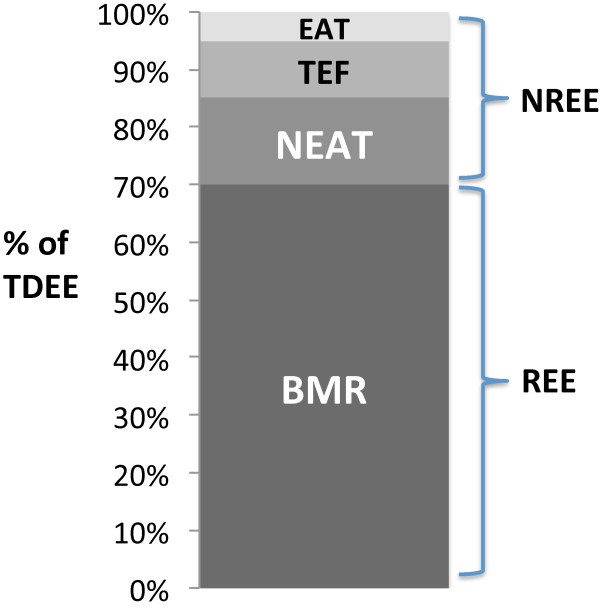Why is ‘How Many Calories Should I be Eating’ so Important?
‘How many calories should I be eating’ is a very UNIQUELY individual question! Let’s address it simply so that you can feel amazing ASAP! Eating the right amount of food has a huge impact on our everyday life which can either be negative or positive. Because food get’s converted into energy to support and sustain so many things.
Such as:
Metabolism
Hormonal profile
Cell repair
General movement
Muscle mass.
Subconscious movement (fidgeting)
Stress balance
Mood
Motivation
Libido
Sleep quality
So, our daily calorie intake is really important but is very under appreciated by most.
How Many Calories Should I be Eating and the Side Effects
Despite humans requiring similar amounts of calories on paper, it’s these small differences that in reality can have drastic outcomes. For example, chronically eating 250-500 calories less per day without realizing may be the difference between high energy or being too lethargic to train. Or waking up aggressively hungry at 07:00 versus feeling satiated until 10:00. In addition, not consuming adequate food leads to other issues.
Such as:
Slower muscle building
Poor strength performance
Low clarity of thought at work
Less energy for the family after work
On the other hand too many calories and you may feel:
Lethargic
Bloated,
Tired
Gain fat too quickly.
So, as you can now see, ‘how many calories should I be eating’ is a question worthy of your time. However, it’s kind of like asking how long a piece off string is. But don’t worry we can start you off at a good range!
The Benefits of Tracking Calories
Tracking calories can consume a little time from your day but the trade offs are certainly worth it for energy alone. Especially to achieve your goals! Because if you want to reach your goals and push passed plateau points you’ll need data to make the right interventions. Basically, what is measured can be managed! Besides, after just a few days of getting used to My Fitness Pal it becomes a matter of minutes per day! And typically humans are creatures of habit in that we eat similar foods each week. However, talking about the intricacies of My Fitness Pal is beyond the scope of this blog. But we will be talking about it in future!
To note, this post is talking about how many calories you need to perform at your best and more so just maintain weight. However, if you wish to drop body fat you will require a daily 500 calorie deficit beneath maintenance calories. Contrarily to gain muscle you will require a 250-500 calorie surplus.
How the Metabolism Links to the ‘How Many Calories Should I be Eating’ question.
Components of Total Daily Energy Expenditure
Back to calories! We are going to keep this nice and simple without going too in depth. But every humans need for calories is dictated by a few important markers and the below image by Research Gate demonstrates this perfectly.

Components of total daily energy expenditure (TDEE). BMR = basal metabolic rate; NEAT = non-exercise activity thermogenesis; TEF = thermic effect of food; EAT = exercise activity thermogenesis; REE = resting energy expenditure; NREE = non-resting energy expenditure. Adapted from Maclean et al., 2011
How Many Calories should I be Eating: Basal Metabolic Rate Accounts for 70% your Total Calories
This accounts for the majority of our energy that we use at rest! This energy sustains the subconscious stuff that we needn’t ever think about. Including; blood circulation, breathing, blinking, hormones, controlling body temperature, cell growth, brain and nerve function and contraction of contractile muscles (heart). After the age of 20 our metabolisms typically slow down by 1-2% every decade. And interestingly, due to a loss of fat free mass (everything except fat). So, strength training is kinda important as it slows this process down! Thus, keep training hard!
Non-Exercise Activity Thermogenesis
This includes everything that isn’t sleeping, eating or sports. So, daily fidgeting (we do this less when dieting), work actions such as typing, walking to work or cleaning.
Thermic Effect of Food
This includes the energy it takes for digestion, absorption and disposal of ingested nutrients. 20-30% of the calories ingested from high protein foods are burned to simply digest the food! And this is just one of many reasons why high protein diets are a good idea for fat loss.
Exercise Activity Thermogenesis
This includes calories burned from intentional exercise like going to the gym, running or getting your step count goals in.
Calories In Versus Calories Out
As you can now more clearly see, all of the above add up to a very individualized daily calorie number for all of us! So a window cleaner on their feet all day and up and down ladders will be able to consume far greater calories than an office worker! Nevertheless, we all require specific calories based on all of the above factors. So not tracking nutrition when wanting to achieve goals is a little like trying to get to work blindfolded everyday and quitting because it doesn’t work. Lastly, under feeding your body can reduce its recovery capabilities which lowers your ability to perform optimally.
How Many Calories Should I be Eating, then?
It’s important to note that there is no perfect calculation to know exactly how many calories a person requires (includes calorie calculators). As a result we have to trial and error calorie targets over 2 week periods and use the scales as a ‘tool’. As well as progress pictures and measurements. However, below will give you a start!
Start Here!
Multiply your body weight in pounds by 15-18 to figure out your Total Daily Energy Expenditure (TDEE). Although this depends very much on your activity levels and occupation. So, use this online calculator for a better estimation but refer to a few body fat images on Google images prior to get the best estimate.
More Muscle Means More Calories
After 5 years of strength training my body weight floats around 178 lb and 11-13% body fat. So, 178 x 17 (15-18 range) equals 3,026 calories which is around maintenance calories. Interestingly, I don’t gain weight at this number of calories (if activity levels stay the same). Further, the beautiful thing about muscle mass is that you can eat more food without fat gain due to having a bigger engine! Yes this goes for you too ladies! But if your current goals are more based towards fat loss then you may find this Weight loss blog interesting!
We really hope we helped you to understand this super important question of “how many calories should I be eating”.
Eat More Calories and Optimize your Machine
The human body is a miraculous machine that you have been given for free! So, why not feel and look your very best every day by optimizing and feeding your machine exactly what it needs? You can then truly see what you’re capable of!
How many calories does your body require?
Feel welcome to visit our home page for more information on our services.

